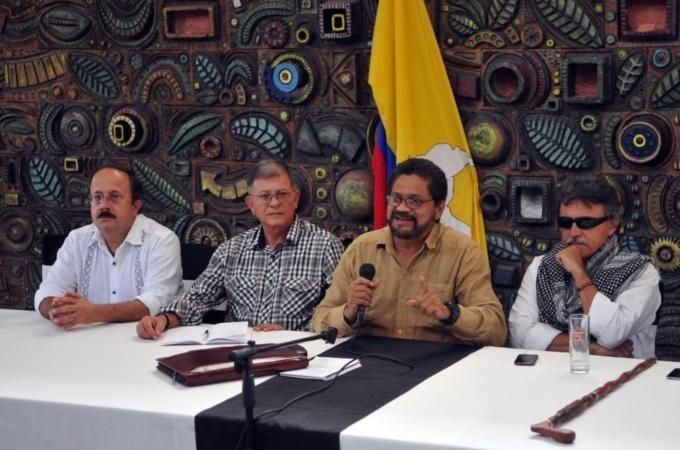
In the midst of peace talks with the Colombian government in Havana, Cuba, the FARC says it wants a breather so it can review a bill drawn up by President Juan Manuel Santos which would put the final product of the peace talks to a public referendum. On Friday morning, one of the group's leaders, who goes by the pseudonym "Pablo Catatumbo", announced that the FARC is suspending discussion with the government over the details of the agreement the two sides have been trying to work out since November 2012, so that the FARC can discuss internally how it will approach the question of how to make a Colombian peace accord stick. Catatumbo did not indicate how long the suspension of talks would last.
The FARC's announcement comes only a day after Santos' government said it would introduce a bill in the Colombian Congress which would establish a public referendum on whatever peace accord is reached in Havana, to be held the same day as the next "ordinary" elections - that is, for either the legislature on March 9 or for the presidency on May 25. If the public decides in favor, the content of the accord - which would likely deal with land reform, drug trafficking, and FARC's right to political participation, among other things - would become part of Colombia's 1991 constitution. Santos' announcement of the bill on Thursday was widely understood as a signal that he wants to bring the peace talks, which have lasted for some nine months now, to a rapid close.
The bill also came as a signal to the FARC that the government would no longer entertain debate with the rebel group over a proposal of theirs which Catatumbo, in his announcement on Friday, said they had demanded "from the beginning": the creation of a constituent assembly made up of Colombian politicians and FARC members which could make further changes to the nation's constitution beyond what was specified in talks. That idea has backing from the government's conservative opposition led by former president Alvaro Uribe, which sees it as necessary to reforming the country's judiciary system. But President Santos calls it "inconvenient and dangerous", warning that "we know where [the changes] start but not where they end". The constituent assembly and the public referendum are two of the only three ways the national constitution of 1991 can be changed.
RELATED: FARC Says US Veteran Kevin Scott Sutay Captured, Offer Release As Peace Gesture
© 2025 Latin Times. All rights reserved. Do not reproduce without permission.




